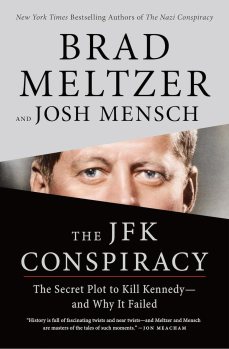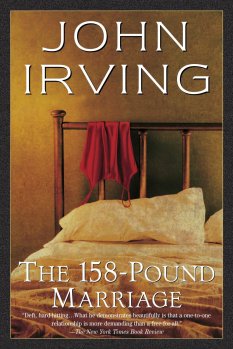Dean Poling’s Book Reviews: The JFK Conspiracy: Brad Meltzer & Josh Mensch
Published 4:03 pm Wednesday, February 19, 2025
The JFK Conspiracy: Brad Meltzer & Josh Mensch
“The JFK Conspiracy” is not a surprising title for a book.
Ever since the 1963 assassination, President John F. Kennedy’s death has inspired numerous conspiracy theories with varying degrees of credibility.
However, the book’s subtitle changes the meaning of “The JFK Conspiracy.” The subtitle: “The Secret Plot to Kill Kennedy – And Why It Failed.”
That’s right. “The JFK Conspiracy” is about an assassination plot against Kennedy but it’s not about that assassination plot.
Anyone who has read the previous “Conspiracy” books by authors Brad Meltzer and Josh Mensch should not be surprised.
“The Lincoln Conspiracy,” for example, was about the plot to kill Abraham Lincoln as he made his way to Washington, D.C., for his inauguration rather than President Lincoln’s violent death by the hand of John Wilkes Booth at the end of the Civil War.
In “The JFK Conspiracy,” Meltzer and Mensch look at a plot to kill Kennedy prior to his inauguration. Here, Richard Pavlick, a retired postal worker, is unhappy about JFK winning the 1960 election against Richard Nixon. Pavlick buys dynamite, moves away from his home and begins showing up in places near Kennedy.
“The JFK Conspiracy” follows the same mix of historical research and thriller-style narrative as previous books by Meltzer and Mensch: “The First Conspiracy” about a plot to kill George Washington, “The Lincoln Conspiracy” and “The Nazi Conspiracy.”
If unfamiliar with these books, “The JFK Conspiracy” is written in a similar style made popular in the “Killing” series of books by Bill O’Reilly and Martin Dugard. Though Meltzer has an added degree of legitimacy in the thriller genre, having penned novels such as “The Fifth Assassin,” “The Book of Lies,” “The Escape Artist,” etc. He’s also penned books about historical oddities and conspiracies, written comic books, etc.
“The JFK Conspiracy” follows Kennedy, Pavlick, Jackie Kennedy, Secret Service agents and others in a page-turning book that’s fascinating even though we know Kennedy will escape this plot only to lose his life nearly three years later with a death that still raises questions more than 60 years later.
The 158-Pound Marriage: John Irving
Before gaining fame writing “The World According to Garp,” published in 1978, and winning the National Book Award for Fiction the following year, John Irving wrote three other novels.
They gained him attention and sold well but were not the hits that “Garp” became.
“The 158-Pound Marriage” is one of the three earlier novels; it was the book published prior to “Garp.” Given its 1973 publication date, its plot probably shocked readers as much then as it likely still will now.
The novel is a study of two married couples who swap partners. Shocking? Perhaps. But not a surprising theme for anyone familiar with Irving’s works. He’s never shied away from controversial subjects.
“The 158-Pound Marriage” also contains plenty of Irving’s sparkling dark mix of humor and tragedy. An Irving book is brutally quirky.
They are also usually full biographies of their fictional characters. Following them from birth (even prior to birth or the moment of conception) to the point of their lives when the book ends. “The 158-Pound Marriage” does the same for three of its four characters; most notably with Utch, the wife of the narrator, who was born in Austria during the horrors of World War II.
Oddly, readers know the least about the narrator’s life prior to the intermingled relationship. As he seeks to better understand and explain the other three members of this group, he reveals little about the childhood and youth that shaped him though readers come to understand the motivations and flaws of his character better than any of the others.







